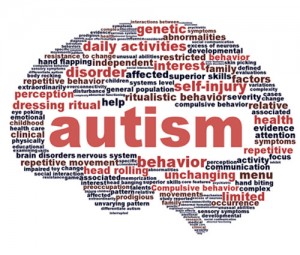Is Autism a Mental Illness?
What is autism?
Autism is a neurodiverse condition that impacts the way you think and respond to the world around you. It’s a spectrum condition, which means it affects people in different ways.
Autism isn’t a mental health problem. But if you’re autistic you may be more likely to experience a mental health problem. According to Autistica, seven out of ten autistic people have a mental health condition.
This fact highlights the urgent need for mental health services and resources that are designed for and with autistic people.

Causes of Autism
Scientists have yet to discover a specific cause of autism. They believe several factors may contribute to this developmental disorder.
- Genetics. If one child in a family has ASD, another sibling is more likely to develop it too. Likewise, identical twins are highly likely to both develop autism if it is present. Relatives of children with autism show minor signs of communication difficulties. Scans reveal that people on the autism spectrum have certain abnormalities of the brain’s structure and chemical function.
- Environment. Scientists are currently researching many environmental factors that are thought to play a role in contributing to ASD. Many prenatal factors may contribute to a child’s development, such as a mother’s health. Other postnatal factors may affect development as well. Despite many claims that have been highlighted by the media, strong evidence has been shown that vaccines do not cause autism.
Mental health conditions and what to look out for
It can be hard for autistic people to communicate concerns relating to their mental health since they find it hard to describe their feelings. Even if there is no complaint of symptoms, it’s important to be aware that a sudden change in their behavior could be a sign of a mental health issue such as the development of an anxiety disorder.
Signals might include:
|
|
Dr. Carla Kesrouani has long worked with ASD populations and uses the most effective method to shape behavior of a child or adult with Autism, Applied Behavior Analysis (ABA). The basis of such programs lie on the following:
- Establish an individualized plan to meet the social, communication, self-help, and leisure needs of a child with ASD, and provide continuous follow up using Applied Behavior Analysis principles
- Work alongside caregivers of a child with ASD to meet his/her individualized educational goals
- Set up an Individualized Educational Plan for children with ASD
- Assist caregivers of children with ASD get rid of negative behaviors using a Behaviour Modification Plan,
- Provide the mental and emotional support needed for the caregivers of a child/adult with Autism Spectrum Disorders
Learn more about how Dr. Carla can help a child with Autism and his family.
I use an evidence-based treatment model for a person with ASD. Contact me now and benefit from a free consultation!

